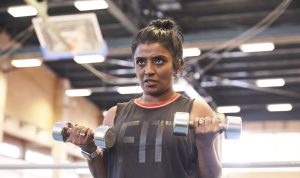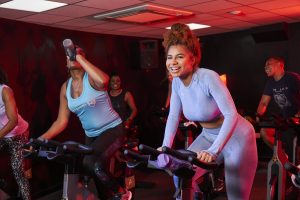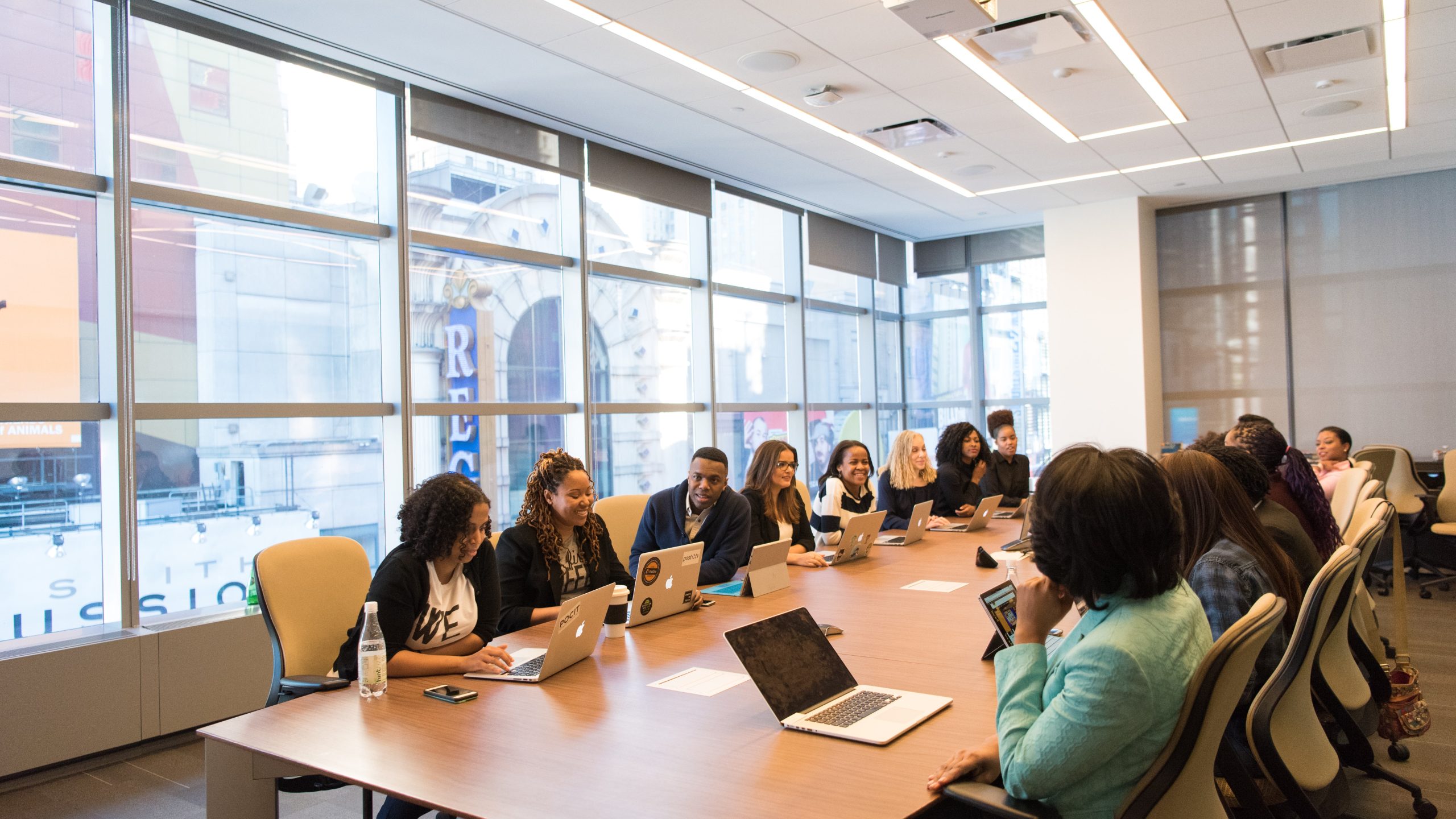In the second of her blogs reflecting on the insight she led for us with Black and Asian women working in sport, Letesia Gibson explores the resilience of the women she spoke to, and what the sector needs to do to support them better…

We all love an outsider, the underdog that, against all odds, wins. Their determination to go for the opportunity head-on, with everything being stacked against them, inspires us to see how much more can be possible. It’s the story of the best of human potential and spirit that we find so captivating.
The sports workplace is teaming with women who have had to fight their way to get ahead. Women in the industry know that there is a specific kind of strength needed to handle the challenges reserved for our gender. Yet, when we look at this through the lens of race, we see how much more challenging that experience is. There’s a mountain of additional obstacles, inside and outside sport, that seemingly remain invisible to those without lived experience of it. And despite this, we hear the stories of how these women have forged ahead to become successful in a white, male world of sport.
They show the kind of resilience and potential that employers are usually falling over themselves to hire. They have everything needed to inspire a future generation that needs to see people like them winning. So, why aren’t we championing them more and why is no-one celebrating their achievements?
I’m not sure our women know just how inspiring they are. How powerful their ability to consistently turn adversity into opportunity is. Because, to them, it’s just life. As one interviewee put it, this “triple challenge”, of being a woman of colour, with class and/or culture differences to navigate gives you a unique experience and perspective of life. It’s a shame this inner strength has to feel like an invisible armour they put on each day, however positively they wear it. As much as it gives them strength, it can be a heavy weight to carry. I want to give an insight into this.
I was struck by the pride everyone felt in what their background and culture had gifted them as women making their way in the world of sport. Strength, values, commitment, community, resilience, empathy to name but a few things that have helped them on their way. I suspect that this appreciation wasn’t always there, but that they have grown to see what an essential role it has played in propelling them forward and equipping them with the skills they bring to the work they do today.
“I’m very proud of my working class background. It’s what got me here.”
“I love my culture. It helps me every day.”
“My background has taught me not to take things personally, to have the moral high ground. It keeps me grounded.”
There is a specific work ethic that they shared. The kind that comes from being an outsider and needing to be better than others to be accepted as average. That drive and focus that comes from always feeling like the success you have now can never be taken for granted. It’s a work-ethic that expects there to be knock-backs, that plans for things not to go to plan, just in case. The kind that continues on because it’s in pursuit of the long game.

“My background as a Black Caribbean female has given me my work ethic. I was taught [that] you’ll have to work harder than anyone else to make it and so I always had a ‘need to prove it’ attitude. But I also saw that you could have what you wanted if you worked for it.”
“I barely saw any brown faces when I started in sport, but I’d already made a commitment to it, so I just kept going.”
“I always felt I had to be 10% better than the average, just to get by. This gave me the foundation for being a hard worker and to be more resilient. My thick skin has definitely helped me. I’ve seen others who have been a lot more affected by it.”
“I put myself in challenging environments. I think I really saw that it was okay to fail, because I expected it to be harder for me.”
I want to talk about the invisible baggage these women carry through having to not only manage others’ perceptions of them in their workplace and in their sport, but also in their own communities. Managing the stereotypes in work of being seen as ‘too loud’ or ‘too timid’ – which get in the way of their true talent – was often the focus. Having to be careful to stand by their values and also avoiding being labelled as ‘playing the race card’. That takes resilience.
“I have to be careful not to trigger the angry Black woman stereotype. I don’t argue. You can’t achieve anything with that anyway. But I’ve seen how this world works with statistics. It’s the language of sports and so I work with this and objectivity to achieve change.”
“I kind of got bullied by some of the women who felt that their more aggressive approach was how I should be in the football world. They said I was too timid, too soft.”
“Sometimes the support from other women isn’t there, because they feel the need to compete with you. It used to make me feel vulnerable, it made others defensive as a result. It knocked your confidence.”
These women have shown immense strength in going into a sector they know will be difficult for women. Especially as we move from the field into management and leadership, where the need to navigate the subtleties of everyday and structural racism is constant and real. This really does impact confidence, leaving them in doubt that ‘someone like me’ could be good enough or will have enough to offer. Having a thick skin doesn’t just help, it’s essential. Despite that, these women stand out as being incredibly resourceful, imaginative, strategic and invested.
They may have taken a longer or less conventional routes, making or finding their own pathways, because these were not shown to them. But they studied, they qualified, they stepped up to career change or reinvention. They have done the work to grow their mindset as well as their skills. But it’s a complex relationship with confidence and self-belief, when you are faced with stereotypes reminding you of what you can and can’t do as a woman of colour.
“The main difference I see between me and white women is confidence: I didn’t go to the clubs, on sports adventures, participate in extra-curricular activities in my youth.
“I see people in my community who cannot get beyond the old story of how they were very limited but what I observe today is a world of sport that has opened its arms. I prefer to change the language and look for solutions, so that we have a mindset of growth and new possibility.”
“A friend told me to prepare for the job I wanted in 5 years’ time, so I started to do my own work on mindset.”
What has helped their commitment to ‘go for it’ has been the support they had along the way. It may have been their family, a friend, or an old coach that saw their potential, or encouraged them to carry on:
“I look to women like me, who share the same growth mindset, so we can push each other up. They do not have to be other south Asian women. Black, Asian, gay, white – we all have our story and that can be valuable too. But when you are connected to others who really get it, it can really help your confidence.”
What is lacking is a more systemic approach to ‘having their back’ and demonstration of investment in women of colour in the sports sector. There’s work to do in addressing the more fundamental aspects of support for all women, for working mothers and those from low income backgrounds as a starter. More work on enabling awareness and access into sports careers, and breaking the belief that all job roles in sports need a person to be sporty or have had experience in sports. More work to promote awareness of newer job functions emerging as sport evolves and grows, to avoid silently replicating old patterns of male dominance.
“In my previous career, I was given a mentor, and it completely changed the way I thought about myself. So, the first thing I did as a leader of a team was to bring in mentors for everyone, so they had the support they needed.”
“More can be done to think about women who have families or who are carers. To think about those who are struggling and don’t have funds. How are they helping the working class?”
“There are a lot of barriers to break down, and the FA could do a lot more to help people like me. Football is still a racist sport.”
But this systemic approach to support also needs to show a lot more care, and it is this specifically that feels missing for women of colour. Celebrating their achievements and knowing what a win look like through their eyes. Demonstrating that they are valued. Supporting them with mentors and coaching. Ensuring anti-racism is everyone’s responsibility. These are key pillars of good coaching and team building, which we should be experts at in the sports sector.
Women in Sport is committed to a working culture where everyone can be authentic and true to themselves. We strive to represent the full diversity of the communities we serve.
That’s why Women in Sport aspires to a culture of belonging for everyone, where diversity is valued for the richness it brings to all aspects of our work, to our quality of thought leadership and to our interactions with all people.
Letesia Gibson is the founder of New Ways consulting. If you haven’t done so yet, read Letesia’s first blog on why belonging is key to diverse leadership in sport here.



